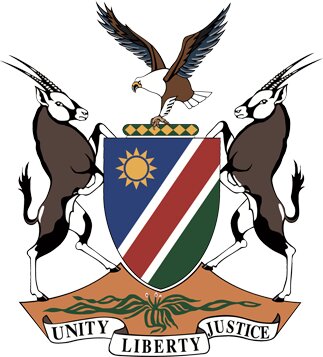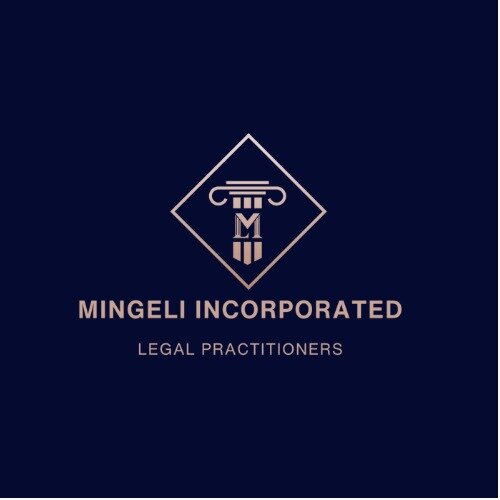Best Family Lawyers in Namibia
Share your needs with us, get contacted by law firms.
Free. Takes 2 min.
Free Guide to Hiring a Family Lawyer
Or refine your search by selecting a city:
List of the best lawyers in Namibia
About Family Law in Namibia
Family law in Namibia encompasses legal issues related to familial relationships such as marriage, divorce, child custody, adoption, and inheritance. As a country with a diverse population and legal traditions, Namibia's family law system is influenced by Roman-Dutch law, customary law, and specific statutes tailored to address the needs of its citizens. The legal framework aims to protect the welfare of families, children, and vulnerable individuals by ensuring justice and equitable solutions.
Why You May Need a Lawyer
There are numerous situations where individuals might require legal assistance in family matters. These can include the drafting and enforcement of prenuptial agreements, handling divorce proceedings, resolving child custody and support disputes, navigating adoption processes, addressing cases of domestic violence, and managing estate and inheritance issues. Each of these scenarios involves complex legal principles and procedures that a qualified lawyer can help clarify and navigate.
Local Laws Overview
Key aspects of local laws relevant to family in Namibia include:
- Marriage: Governed by both civil and customary law, marriages can be registered under the Marriage Act. Customary marriages require compliance with the specific cultural traditions of the ethnic community.
- Divorce: Divorce matters are handled by the High Court, and the process can be more straightforward in cases of consensual divorce with mutual agreements on settlements.
- Child Custody and Support: Decisions are based on the best interests of the child, with consideration for both parents' circumstances and capabilities.
- Domestic Violence: The Combating of Domestic Violence Act provides protection for victims and outlines legal procedures for reporting and addressing abuse.
- Adoption: Governed by the Child Care and Protection Act, ensuring that adoptions are conducted in the best interest of the child while maintaining rigorous oversight.
Frequently Asked Questions
What is the process for obtaining a divorce in Namibia?
Divorce processes require filing a petition in the High Court. It involves attending court hearings and obtaining a decree of divorce, which outlines the division of assets, child custody, and support arrangements.
How are child custody arrangements determined?
Custody is determined by the court based on the best interests of the child, incorporating factors such as the child's safety, emotional well-being, and the capability of each parent to provide care.
Can I get legally married under customary law?
Yes, you can. Customary marriages are recognized, provided they adhere to the specific cultural practices and are duly registered with the relevant authorities.
What protection is there against domestic violence?
The Combating of Domestic Violence Act offers mechanisms for victims to seek protection orders and legal recourse against perpetrators.
Is there legal recognition for common-law marriages?
Common-law marriages are not formally recognized, though long-term partners may seek legal recognition of their relationships under cohabitation agreements or other legal frameworks.
What is needed to adopt a child in Namibia?
The adoption process requires compliance with the Child Care and Protection Act, including a social worker's assessment and a court order confirming the adoption is in the child’s best interest.
How can I challenge a will or an inheritance dispute?
Challenging a will involves demonstrating that the testator lacked testamentary capacity, was unduly influenced, or did not comply with formal requirements. Legal advice is recommended.
What rights do grandparents have in custody or access disputes?
Grandparents can apply for access or custody rights under certain conditions, especially if it serves the child's best interest, though parental rights usually take precedence.
How does the law address maintenance for children after divorce?
The court orders maintenance payments based on both parents' financial means, the child's needs, and the standard of living prior to the divorce.
Can I create a prenuptial agreement in Namibia?
Yes, prenuptial agreements are legally recognized and can outline asset division and financial arrangements in the event of a divorce, provided they meet legal validity requirements.
Additional Resources
For further assistance, consider reaching out to the following resources:
- Legal Assistance Centre (LAC): A non-profit organization providing legal advice and assistance, specializing in human rights and family law.
- The Ministry of Gender Equality and Child Welfare: Offers support and resources related to child protection and family welfare.
- The Namibian Law Society: A regulatory body that can assist in finding qualified family law practitioners.
- Childline Namibia: Provides support for children and families facing issues such as abuse and neglect.
Next Steps
If you need legal assistance in family matters, consider the following steps:
- Identify Your Needs: Clearly define what legal assistance you require, whether it's related to divorce, custody, or domestic issues.
- Consult a Professional: Contact a qualified family law attorney or legal aid provider to discuss your situation and receive expert advice.
- Collect Documentation: Gather necessary documents such as marriage certificates, financial records, and any relevant correspondence to aid in your legal consultation.
- Understand Your Rights: Familiarize yourself with the basic rights and obligations under Namibian family law, using resources like legal guides or workshops.
- Proceed with Legal Action: Follow the advice of your legal counsel and complete any required court filings or documents in a timely manner to protect your interests.
Lawzana helps you find the best lawyers and law firms in Namibia through a curated and pre-screened list of qualified legal professionals. Our platform offers rankings and detailed profiles of attorneys and law firms, allowing you to compare based on practice areas, including Family, experience, and client feedback.
Each profile includes a description of the firm's areas of practice, client reviews, team members and partners, year of establishment, spoken languages, office locations, contact information, social media presence, and any published articles or resources. Most firms on our platform speak English and are experienced in both local and international legal matters.
Get a quote from top-rated law firms in Namibia — quickly, securely, and without unnecessary hassle.
Disclaimer:
The information provided on this page is for general informational purposes only and does not constitute legal advice. While we strive to ensure the accuracy and relevance of the content, legal information may change over time, and interpretations of the law can vary. You should always consult with a qualified legal professional for advice specific to your situation.
We disclaim all liability for actions taken or not taken based on the content of this page. If you believe any information is incorrect or outdated, please contact us, and we will review and update it where appropriate.
Browse family law firms by service in Namibia
Namibia Attorneys in related practice areas.
Browse family law firms by city in Namibia
Refine your search by selecting a city.
















